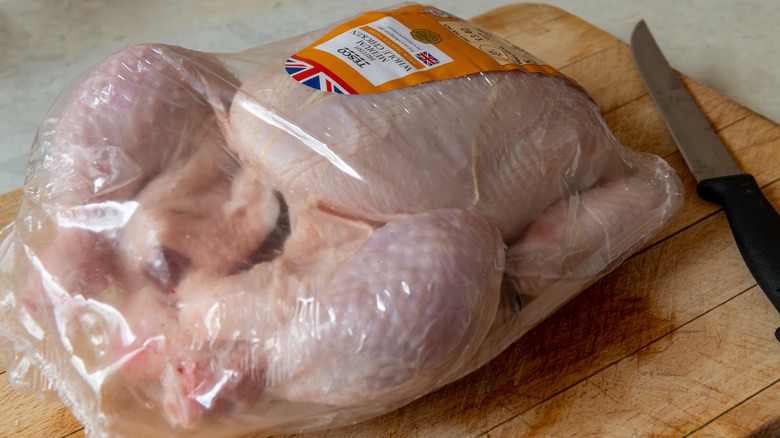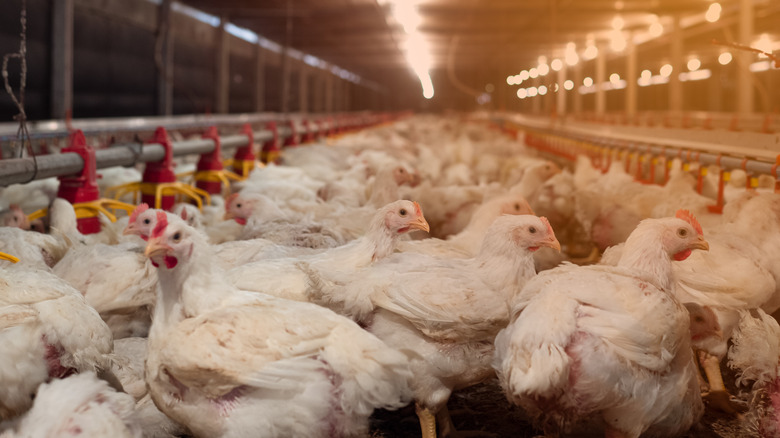New Report Blames Tesco Chickens For Ruining UK River. Here's How
A new investigation by The Guardian shows that increased chicken production in Hereford to supply Tesco has polluted the River Wye. In 2014 alone, 22 applications to increase chicken production numbers by 1.4 million were made to the Herefordshire city council. For reference, the number of chickens in the entire UK grew from 13 to 18 million between 2013 and 2017.
Such a massive accumulation of chickens around one river is an issue due to the amount of excrement chickens produce. Chicken Whisperer Magazine explains that a normal mature chicken can poop every thirty minutes. All of that excrement has to go somewhere and for factory farms, that somewhere tends to be local rivers.
Paul Withers, a professor of catchment biochemistry at Lancaster University, explained to The Guardian that the phosphorus which appears in large quantities in chicken waste has appeared in overly large quantities in the Wye. This would take decades to rectify. Traditionally, the River Wye has been beloved for its beauty. The amount of phosphorus in the river, however, have caused algal blooms to spread and kill the wildlife, as covered by earlier piece in The Guardian. The algal blooms began to appear at a quicker pace after a deal between Tesco and the processing plant Cargill, The Guardian contends.
A spokesperson for Tesco commented that they and other actors across the food industry were committed to protecting the River Wye.
The problems are not confined to one river
When most people buy their chicken in the supermarket, the tight plastic wrap belies the mess of its production. The pollution The Guardian wrote about does not only occur in a river passing through Wales and England. It's not a one factory issue, but an issue with the factory.
In 2016, NPR reported on how chicken farms in North Carolina were growing and running into regulations meant to keep them away from domestic areas. Craig Watts, one industrial chicken farmer, produced 700 tons per year at the time of writing. Normally, this is done at a distance from people. But residents started to notice the smell. "Your throat starts to hurt — you know you are in it," Terry Marshall, a resident of Surry County, said. "It smells like a lot of ammonia, and sometimes, just dead rotting meat."
It's not just the smell that's an issue. Pew Trusts writes that like the River Wye, the Chesapeake Bay has been suffused with excess nutrients due to chicken feces. Just like the Wye, this has led to the proliferation of algal blooms that created dead zones in which wildlife no longer flourish (per The Washington Post).

